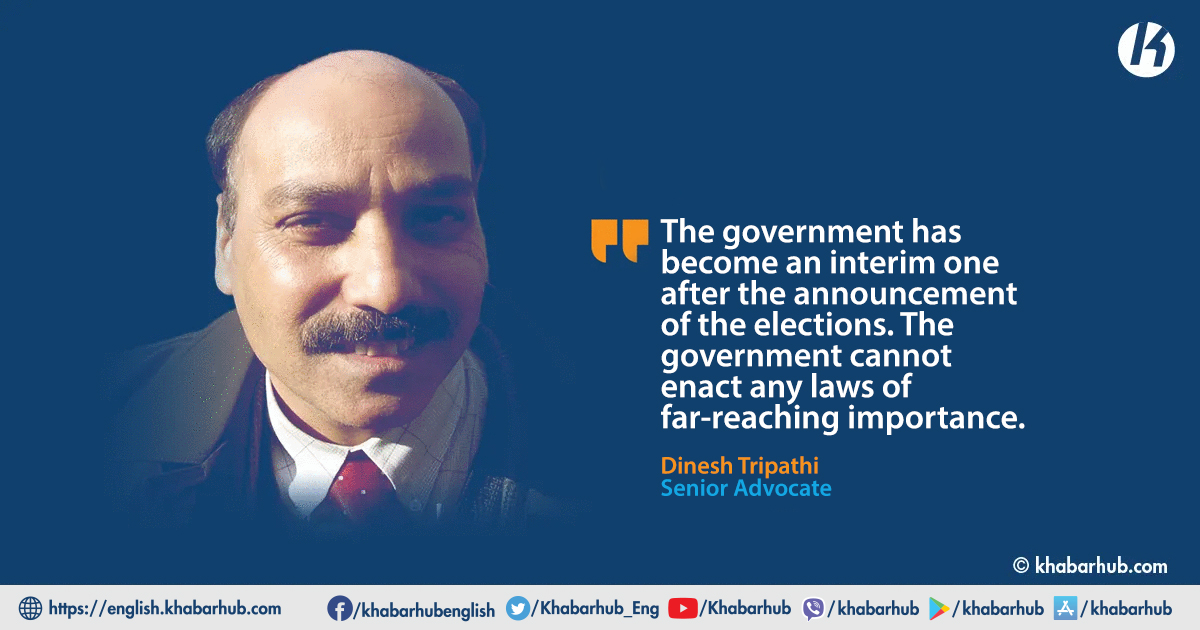KATHMANDU: Amid the dispute, the government brought a draft to extend the term of the House of Representatives.
The opposition CPN-UML opposed to the provision that mentioned that the term of the parliament would continue even after the announcement of the election.
Dissatisfaction increased because the constitutional law experts and citizens univocally interpreted the move as an attempt to exploit the state funds in the name of salary and allowances.
In this context, Khabarhub’s Dhiraj Basnet talked to senior advocate Dinesh Tripathi to discuss he issues related to the government’s move. Excerpts:
Was the government’s move to extend the term of the House of Representatives in accordance with the Constitution?
In fact, the government’s move to extend the term of the House of Representatives was beyond the norms and values of the Constitution. That was against the Constitution, constitutional values, and ethics.
When the election is announced, the Parliament cannot decide on behalf of itself. The country is all set to face the election.
All those parliamentarians go to the polls. However, it was said that the post of lawmakers would continue until the oath was taken by the newly-elected lawmakers.
Was that a ploy to enjoy the salary allowance of the state?
The government tried to extend the term of the HoR to extort the salary and allowances. After the announcement of the election, the government becomes an interim one. Therefore, such a government cannot enact laws of far-reaching importance.
Can we say that the government’s aim was to take the impeachment motion against suspended Chief Justice Cholendra Shumsher Rana to a logical end?
If they had a really good intention, as they filed an impeachment motion in Parliament, they would not have left it dormant for 6 months.
We said that when the motion for impeachment is registered, we should jump to a conclusion immediately.
Now, just after the election date was announced, they raised the issue of impeachment. This is not like any other offer motion. Impeachment is not inactive even after the session of the parliament is over.
Was the political parties’ decision a bit hasty?
They are not even prudent and they act without consulting the scholars; they act without enough consideration the facts and legal provisions.
India also faced the same problem in the Rama Swamy case. A new election was announced at the same time as the motion was tabled, and the court ruled when the next parliament tried to move it forward.
India and Nepal have the same provision regarding impeachment. This is not an ordinary proposition. This is an extraordinary case. So, one cannot get immunity for a technical reason.
What do you have to say about the controversial Media Council Bill? Is the government trying to regulate journalism or trying to curb journalists?
This is not a regulation, it is meant to control the media. Earlier, when KP Oli was the Prime Minister, we all protested against such a bill.
It has been brought by changing a few words now. It curbs the freedom of journalism. The essence of any democracy is ‘press freedom’, in a country that does not have press freedom; there is no freedom of thought.
When the media cannot function independently, democracy cannot sustain.
This is directly against the Constitution.









Comment